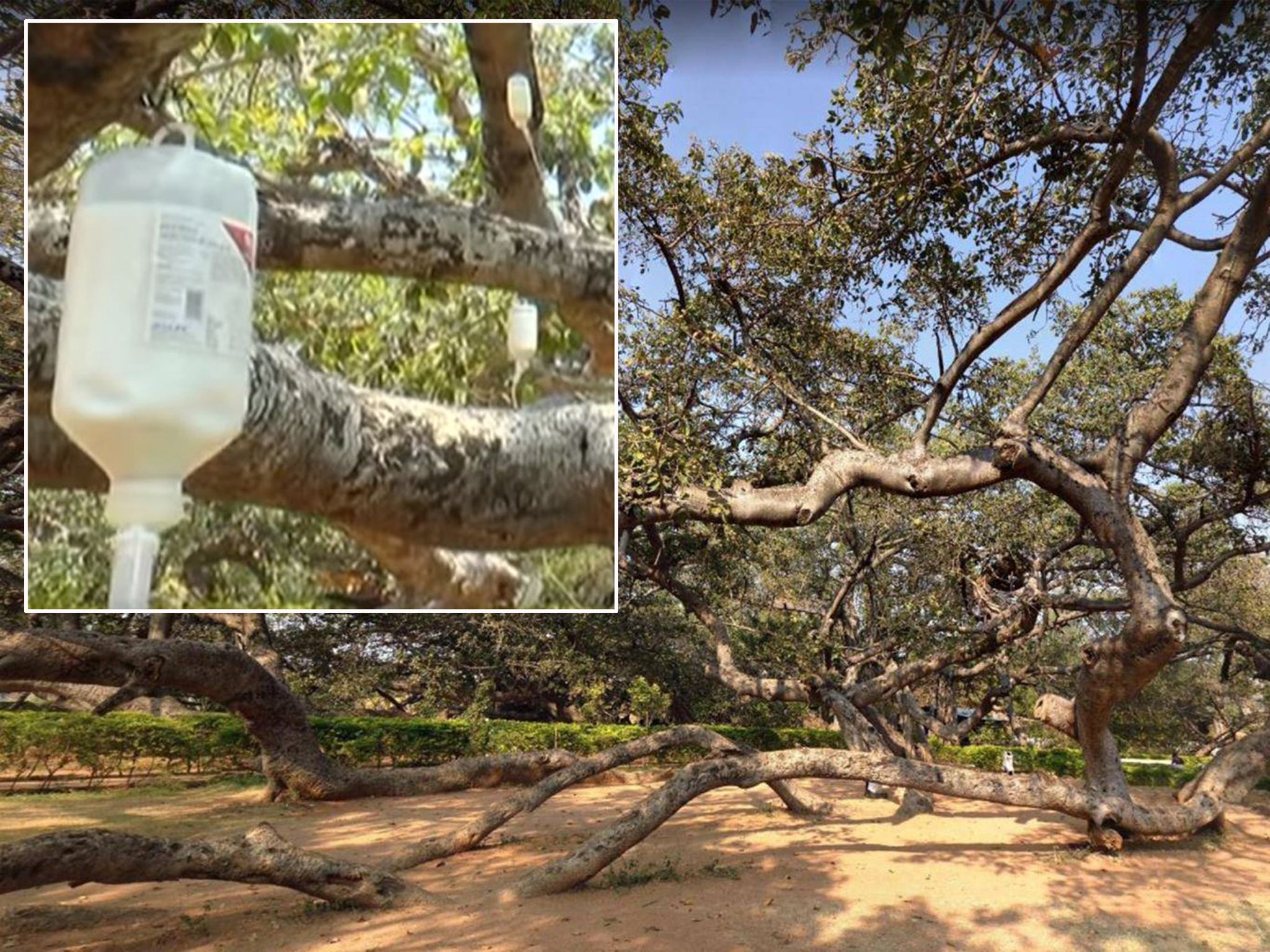Dying 700-year-old tree put on insecticide drip in final attempt to save it from termites
World's second largest banyan tree is crumbling

A 700-year-old tree in India has been put on a drip in a last-ditch attempt to save it from being eaten by termites.
Pillalamarri, said to be the world's second biggest banyan or ficus benghalensis, was hooked up to hundreds of bottles of diluted insecticide by forestry officials after standard treatments failed.
The tree is a popular tourist attraction because its branches spread over a three-acre area in Mahabubnagar, around 62 miles north of Hyderabad in central India.
It was closed to visitors in December after it started crumbling - partly because tourists and children were using it as a swing.
“There were two major reasons for the crumbling," Mahabubnagar district forest officer Chukka Gangi Reddy told the Hindustan Times. "First, right from the trunk to branches to propagating roots, it was heavily infested with termites.
"Secondly, the branches got bent downwards with tourists using them as swings.”
The forest department tried to tackle the termite infestation by pouring diluted Chlorpyrifos around its roots.
When that failed they pumped the diluted chemical into holes drilled into the trunk and branches.
“However it did not work properly," said Mr Reddy. "We thought sending diluted insecticide into the affected parts drop by drop like a saline drip might help. We hung hundreds of saline bottles filled with insecticide every two metres. It is working very well."
The treatment is expected to continue another two or three months before the termites are exterminated.
Parts of the tree have already been propped up with cement blocks to prevent further collapse.
Banyan trees are the national tree of India and are considered sacred - Pillalamarri has a tomb of a Muslim saint under its branches.
They are sometimes known as "strangler figs" because they often grow on another plant before envoloping the host in its roots.
Over centuries the spreading roots form separate woody trunks when they reached the ground and as a result they can resemble a forest of separate trees.
The world's largest banyan tree spreads over eight acres in Acharya Jagadish Chandra Bose Indian Botanic Garden near Kolkata in India
Join our commenting forum
Join thought-provoking conversations, follow other Independent readers and see their replies
Comments
Bookmark popover
Removed from bookmarks